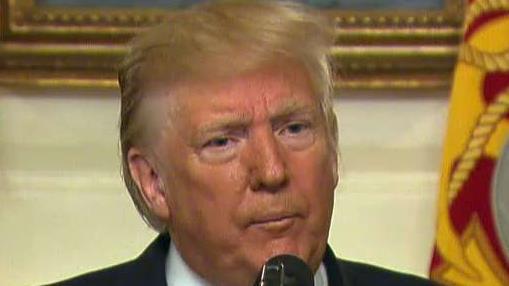Funding terror: How ISIS became a billion-dollar extremist group
While there is no clear answer as to how much money ISIS has, the caliphate was believed to control $2 billion at its peak, from a combination of private donations, tax, ransom payments and commercial revenue streams.
It reportedly received a giant infusion of cash after seizing a Mosul, Iraq, bank in June 2014, pocketing $425 million. The added cashflow made ISIS the richest terror group ever.
But its most reliable source of income has been tax revenue from loyalists and exploitation of Syrian and Iraqi oil fields, something that President Trump has said he intends to stop, even at the cost of American lives.
ABU BAKR AL-BAGHDADI KILLED: HERE'S HOW MUCH BOUNTY THE US WAS OFFERING FOR ISIS LEADER
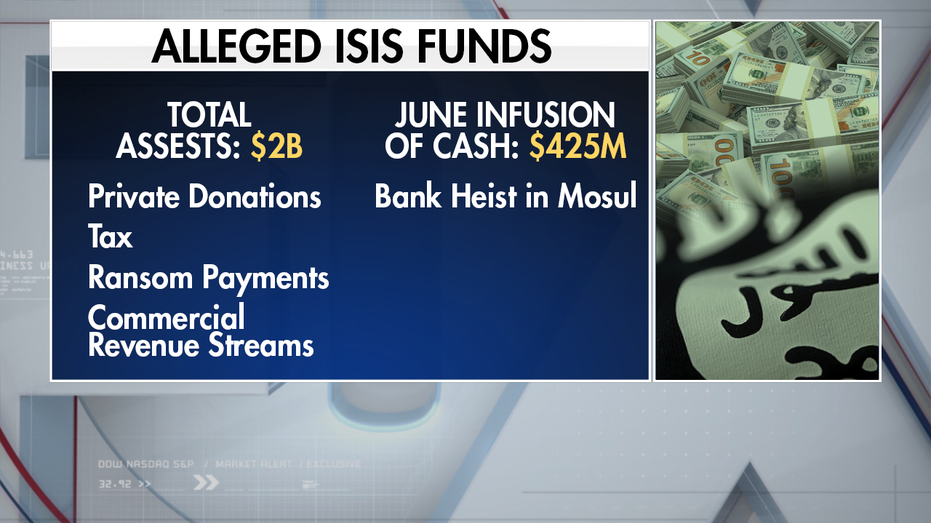
(Data: July 2014)
The U.S. "may have to fight for the oil," Trump said Sunday after announcing the death of ISIS leader Abu Bakr al-Baghdadi. "It's OK."
Where that money is now isn't known.
MOST WANTED TERRORISTS: MILLION-DOLLAR BOUNTIES
"What we know is that they accumulated large amounts of cash and other assets," Rand Corporation senior economist Howard Shatz told The Atlantic in March. "We don't know where it all went."
Some of the revenue came from selling stolen antiquities. Relics from Syria as old at 8,000 years fetched $36 million for the terrorist group on the black market in 2014, according to reports.
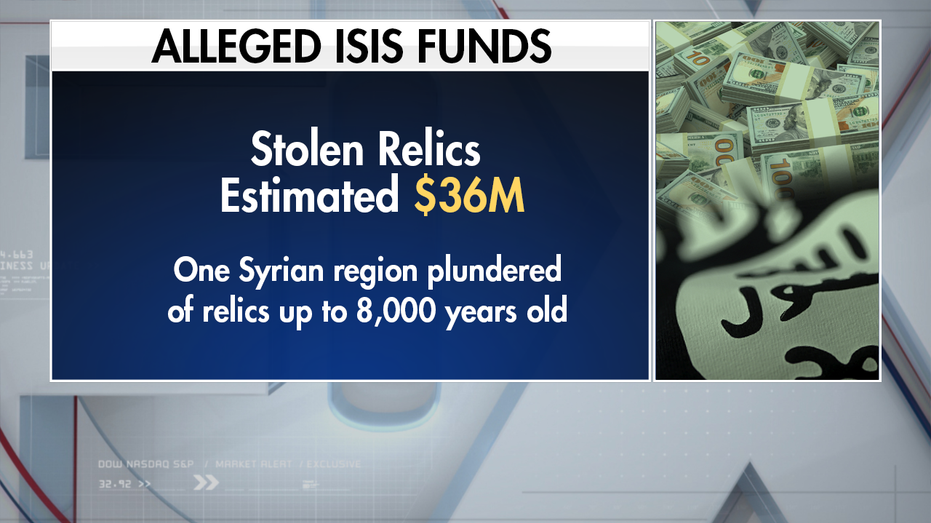
At the caliphate's peak, ISIS fighters were selling 100 trucks of oil per day, bringing in nearly $1 million per day, according to reports at the time. Now, though, the physical caliphate has all but been destroyed, according to the Trump Administration.
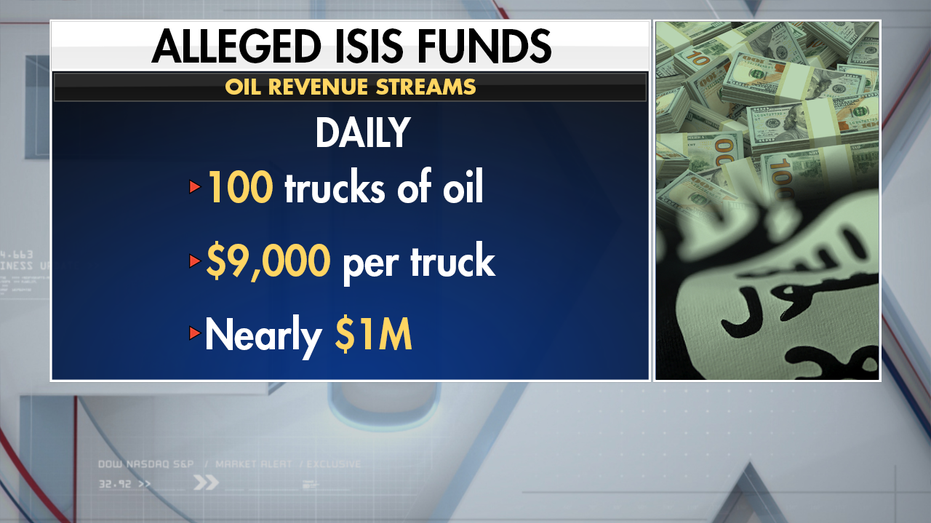
(Data: July 2014)
ISIS also reportedly used ransom payments to rack up large sums.
GET FOX BUSINESS ON THE GO BY CLICKING HERE
"Aside from state sponsorship of terrorism, ransom payments are the greatest source of terrorist funding today," Treasury Under Secretary David Cohen said in June 2014.
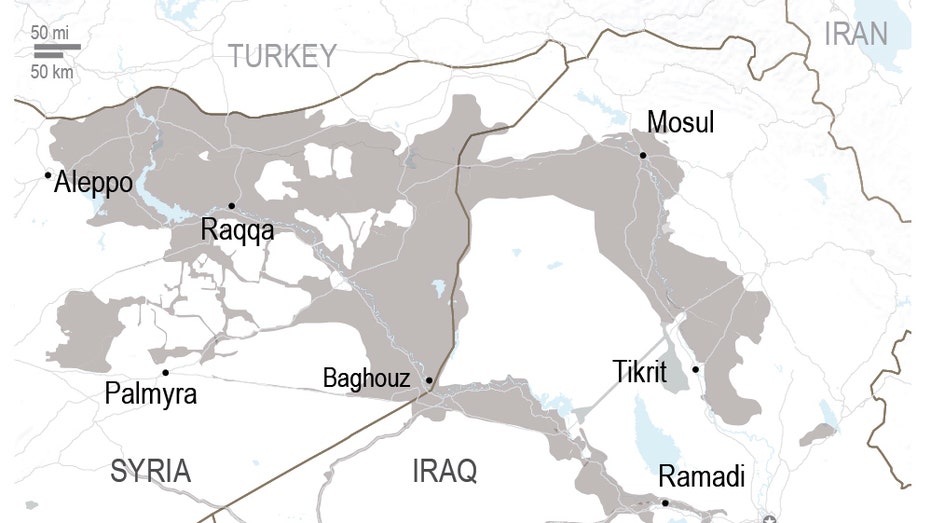
It also raised money by soliciting donations online and received gifts from wealthy individuals in countries like Qatar, U.S. officials said at the time.




















